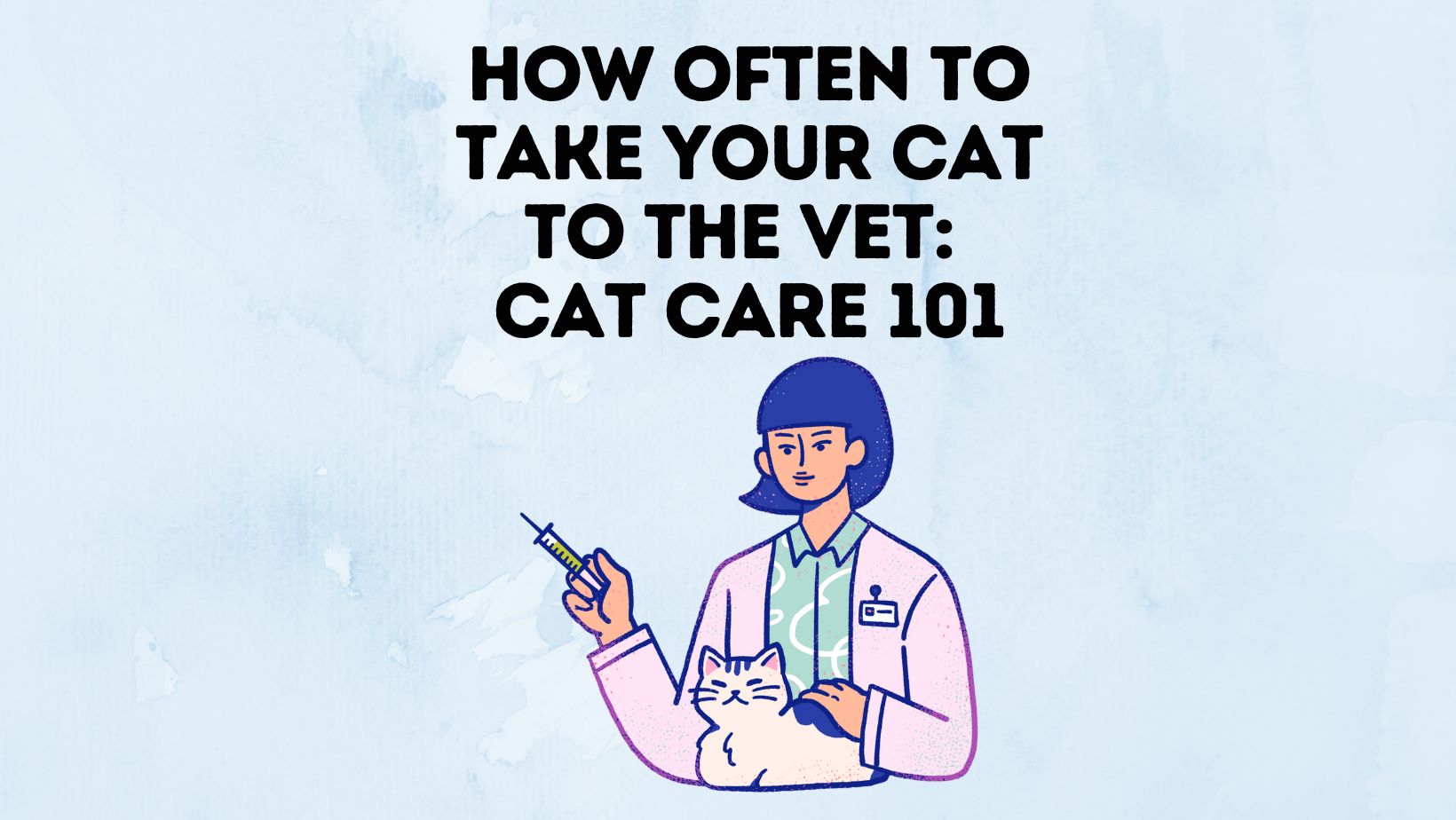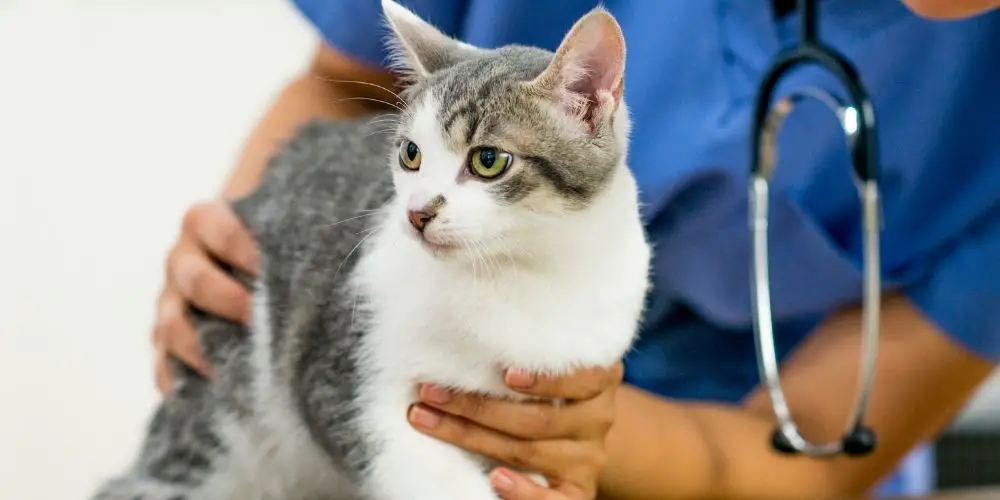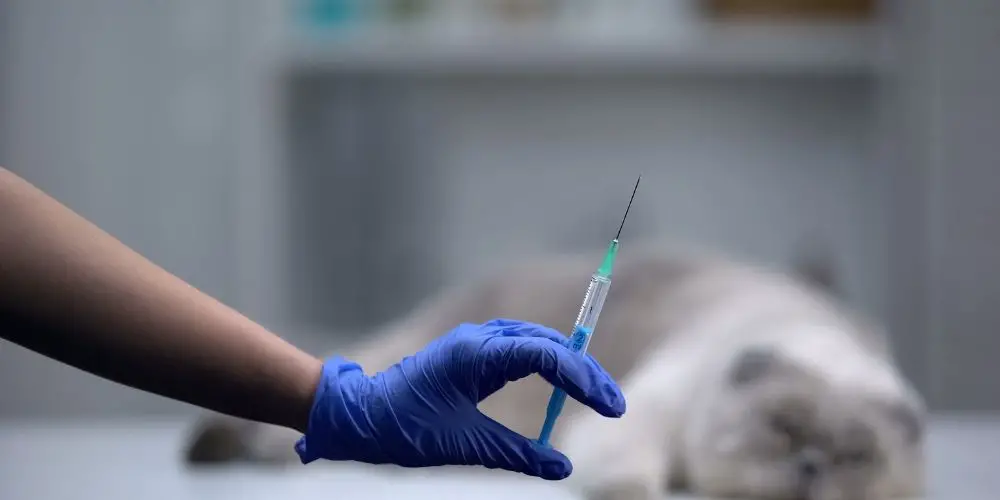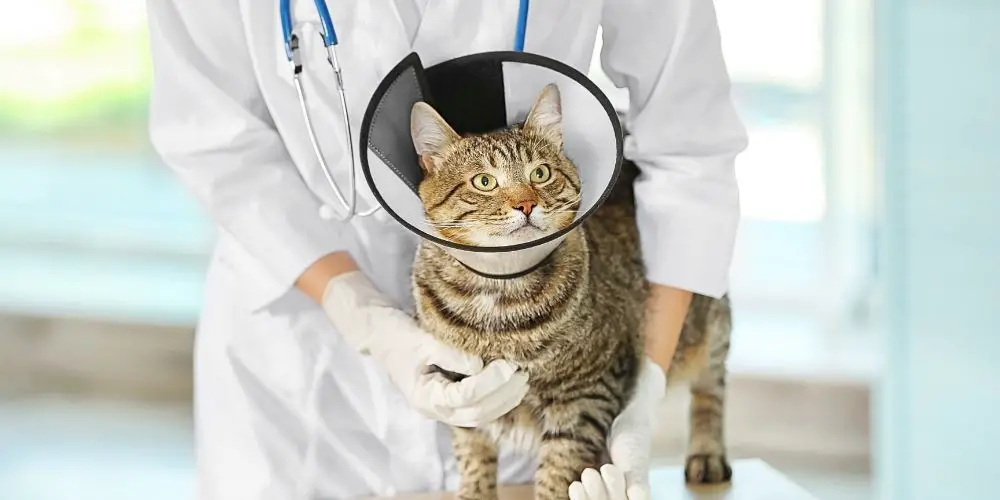
Owning a cat and looking after its health and well-being require regular visits to the vets. However, it can sometimes be difficult to tell when the right time is to take your pet for a check-up. Here, we’ll guide you through some basics about how to care for your cat.
As a general rule, you should take your cat to the vet for regular checkups and preventive care at least once a year. However, there are some situations when you should take your cat to the vet sooner:
- Changes in behavior: If your cat is acting differently than usual, it could be a sign of an underlying health issue. Examples include sudden aggression, lethargy, hiding, decreased appetite or thirst, excessive vocalization, or other unusual behavior.
- Changes in appetite or thirst: If your cat is eating or drinking significantly more or less than usual, it could be a sign of a health problem such as diabetes, kidney disease, or dental issues.
- Vomiting or diarrhea: If your cat is vomiting or has diarrhea for more than a day or two, or if you notice blood in their vomit or stool, it could be a sign of a gastrointestinal issue.
- Respiratory symptoms: If your cat is sneezing, coughing, or has difficulty breathing, it could be a sign of a respiratory infection or other respiratory issue.
- Skin or coat issues: If your cat has persistent skin irritation, hair loss, or any other issues with their coat, it could be a sign of an allergy or other underlying health issue.
- Mobility issues: If your cat is having difficulty walking or jumping, it could be a sign of joint issues, arthritis, or other mobility problems.
- Unexplained weight loss or gain: If your cat is losing or gaining weight without a change in diet or exercise, it could be a sign of a health issue such as hyperthyroidism or diabetes.
- Eye or ear issues: If your cat has red, swollen, or irritated eyes or ears, it could be a sign of an infection or other health issue.
- Changes in litter box habits: If your cat is urinating or defecating outside the litter box, it could be a sign of a urinary tract infection or other health issue.
In general, if you notice any changes in your cat’s behavior or health, it’s always better to err on the side of caution and take them to the vet as soon as possible. Early detection and treatment of health problems can help ensure a better outcome and improve your cat’s quality of life.
Why Should You Take Your Cat To The Vet?
Taking your cat to the vet is important for several reasons:
- Preventive care: Regular veterinary visits can help prevent health problems before they become more serious issues. Routine check-ups can detect underlying health conditions that may not show symptoms yet.
- Early detection and treatment: Early detection of health problems can lead to more effective treatment and better outcomes for your cat.
- Vaccinations: Vaccinations can protect your cat from common and potentially deadly diseases, such as feline leukemia virus (FeLV) and feline immunodeficiency virus (FIV).
- Parasite prevention: A veterinarian can provide preventative care for fleas, ticks, and other parasites that can be harmful to your cat’s health.
- Dental health: Dental problems are common in cats and can lead to other health issues if left untreated. Regular dental check-ups and cleanings can prevent dental disease.
- Spay/neuter: Spaying or neutering your cat can prevent unwanted litters and reduce the risk of certain health problems.
- Behavior concerns: If you have any concerns about your cat’s behavior, a veterinarian can provide advice and treatment options to improve their behavior and quality of life.

How Often Should You Take Your Cat To The Vet?
You should take your cat to the vet at least once a year for a routine check-up and preventive care. However, the frequency of veterinary visits may depend on several factors, including the cat’s age, health status, and any ongoing medical conditions.
For example, senior cats or cats with chronic medical conditions may require more frequent check-ups, such as every six months. Similarly, kittens may require more frequent visits to receive their vaccinations and ensure proper growth and development.
If you notice any changes in your cat’s behavior, appetite, or overall health, it’s important to schedule a veterinary visit as soon as possible. It’s always better to err on the side of caution and seek medical attention if you have any concerns about your cat’s health.

Cat’s Vet Visit: What to Do Before, During, and After
Before the Vet Visit:
- Schedule an appointment: Call your vet’s office and schedule an appointment for your cat’s check-up. Be sure to mention any specific concerns or issues you would like the vet to address.
- Prepare your cat’s carrier: Make sure your cat’s carrier is clean, comfortable, and secure. Leave it out for a few days before the appointment to allow your cat to get used to it.
- Update your cat’s information: If any of your cat’s information, such as their address or phone number, has changed, make sure to update it with your vet’s office.
- Gather relevant information: If your cat is on any medication or has any medical conditions, make a list of these to bring with you to the appointment.
- Consider feeding your cat lightly: It’s best to feed your cat a light meal a few hours before the appointment, as some cats may get motion sickness during car rides.
During the Vet Visit:
- Keep your cat calm: The vet’s office can be stressful for cats, so try to keep them calm and comfortable. You can bring a favorite toy or blanket to help them feel more at ease.
- Be honest with the vet: Be honest with the vet about any concerns or issues you may have noticed with your cat’s health or behavior. This will help the vet make an accurate diagnosis and develop an effective treatment plan.
- Ask questions: If you don’t understand something the vet says or have any questions, don’t hesitate to ask.
- Request a written summary: Ask the vet for a written summary of the visit and any recommendations they have made for your cat’s health.
After the Vet Visit:
- Follow the vet’s recommendations: If the vet has recommended any treatments or follow-up visits, be sure to follow through with them.
- Update your records: Update your cat’s medical records with any new information from the visit.
- Monitor your cat’s behavior: Keep an eye on your cat’s behavior and health after the visit, and contact the vet if you notice any concerning changes.
Overall, taking your cat to the vet regularly and following their recommendations is key to ensuring your cat’s health and happiness.

Signs of Illness in Cats
Cats are known for their ability to hide signs of illness, so it’s important to be aware of the subtle changes your cat shows in its behavior that could indicate a health problem. If you notice clear symptoms in your cat, for example, constant loud meowing or signs of visible distress, you could go online and search for “vet near me” to locate where to take them for a check-up as soon as possible.
One of the most common signs that your cat is ill is if it stops eating. A decrease in appetite or a complete refusal to eat could be due to an underlying problem such as diabetes or even kidney disease.
Also, look out to see if your cat is showing signs of lethargy, or signs of being thirsty. You should monitor your cat’s weight too as this could be another indication that your pet is ill. Pay attention to any unusual lumps or bumps on your cat’s body, as these can also be indicators of illness.
How to Monitor Your Cat’s Health
The best way to monitor the health of your cat is to keep up with regular check-ups and vaccinations for your cat. This will help ensure that any potential health issues are caught early on and can be treated quickly and effectively. You should also keep your cat on a balanced and nutritious diet in order to help it remain fit and active.

Cat Care 101: Cat Care Tips For Beginners
Congratulations on becoming a new cat owner! Here are some basic cat care tips for beginners:
- Set up a safe and comfortable environment: Make sure your home is safe for your new cat by removing any hazardous items or plants, and providing a comfortable resting place.
- Provide a balanced and nutritious diet: Choose a high-quality cat food that provides a balanced diet and meets your cat’s nutritional needs. Consult with your veterinarian if you have any questions about feeding.
- Provide fresh water: Make sure your cat has access to clean, fresh water at all times.
- Keep the litter box clean: Cats are clean animals, so make sure to keep their litter box clean and scooped regularly.
- Provide regular exercise and playtime: Cats need exercise and mental stimulation to stay healthy and happy. Play with your cat daily and provide toys and scratching posts for them to play with.
- Regular grooming: Regular grooming is important for your cat’s health and hygiene. Brush your cat’s fur regularly, trim their nails, and clean their ears and teeth as needed.
- Keep up with veterinary care: Take your cat to the veterinarian for regular check-ups and preventive care. Make sure to keep up with vaccinations, flea and tick prevention, and any necessary treatments.
- Provide a safe and stimulating environment: Cats need a safe and stimulating environment to thrive. Provide them with a variety of toys, scratching posts, and comfortable resting places.
- Give your cat love and attention: Finally, give your cat plenty of love and attention. Spend time with them, pet them, and play with them to build a strong bond.
By following these basic cat care tips, you can provide a happy and healthy life for your new feline friend.
How to Comfort a Sick Cat?
When your cat is feeling sick, it’s important to provide them with extra care and comfort. Start by creating a cozy space for them in a quiet area of your home and make sure the temperature is comfortable. It’s important you provide fresh water and food for your cat, as well as any medications prescribed by your veterinarian.
If possible, try feeding them small meal portions throughout the day instead of one large meal at once, as this can be easier on their stomachs when they are sick. Check on them regularly throughout the day and provide gentle petting to keep them calm and relaxed.
Generally, you should take your cat to the vet at least once a year for a check-up and vaccinations. Always be aware of any changes in your cat’s behavior and contact the vet immediately if you notice any concerning signs.
Summary:
- It’s important to take your cat to the vet for preventive care, vaccinations, early detection and treatment of health problems, parasite prevention, dental health, spay/neuter, and behavior concerns.
- Kittens should be taken to the vet as soon as possible after adoption for a health check, vaccinations, parasite prevention, spay/neuter, and microchipping.
- Cats should have at least one routine check-up per year, but the frequency may depend on their age, health status, and medical history.
- Regular veterinary care can help ensure your cat remains healthy and happy throughout their life.
Citations and References:
- American Veterinary Medical Association (AVMA). “Why regular veterinary visits are important for your cat’s health.” https://www.aaha.org/your-pet/pet-owner-education/ask-aaha/why-are-regular-veterinary-visits-important/
- Cornell University College of Veterinary Medicine. “Kitten wellness plans.” https://www.vet.cornell.edu/departments-centers-and-institutes/cornell-feline-health-center/health-information/feline-health-topics

Hi, This is Alexa, and I love cats. This Website is a Complete Journal about how to travel with a cat and other information about Cat Health, Cat Training, Cat Behavior, Cat Foods and more. I hope you find it useful.
